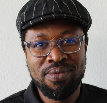Following the ascendancy of Boris Johnson to the position of Prime Minister of Britain, there has been much alarm expressed by the chattering classes and our erstwhile social media analysts about the seemingly undesirable rise of populism and populist politics within the global political arena.
Johnson’s stepping into office at Number 10 Downing street with its Brexit implications presents further evidence of the right wing, conservative advance (and the retreat of liberalism) within the global body politic that I wrote about a couple of weeks ago. Not only that, it also showcases the clear historical link between populism with its “Trumpean” characteristics in the current epoch and extreme nationalism, a topic and opinion piece on its own for another day I guess.
The interesting thing with this phenomenon, is that it cuts across both sides of the ideological terrain. We have Donald Trump and Boris Johnson on the right and Bernie Sanders and Jeremy Corbyn on the left, all populists tapping into the popular dissent with the current socio-economic climate, which advances the interests of an “oligarchic elite” at the expense of the common man, the ordinary citizen, the subalterns of society or in Fanonian phraseology “The Wretched of the Earth.”
So it would appear that populism, with its innate characteristics has no ideological biases unlike most of us who look at issues through the parochial lenses of our dogmatic ideological leanings. In considering all this, my point of departure was that populism is not a new or novel phenomenon within the global political arena, rather it is to some extent “the essence of the quintessence” of modern, popular (there is a reason why it is called that) democracy with all its idiosyncrasies.
Politics after all, is about the contestation of power and within the modern, democratic framework the person or party that wins the “popular vote” in the end attains the power that is needed in order to advance a certain political programme or agenda. (Although, this “popular vote” phenomenon did not work for Hillary Clinton in the context of the American electoral college system). So populism is by definition a permanent feature of democratic politics not a recent, unwanted phenomenon.
In fact, the best politicians throughout history have used populist appeals to advance themselves and whatever agendas they espouse to, whether right or wrong. Hence, Adolf Hitler, one of the greatest orators in history, was a brilliant politician. At this point, I must put forward the disclaimer that this is an objective analysis of Hitler the politician’s modus operandi to attain and retain power through populist, nationalist appeal within the modern political context, not a normative approval of his warped, evil ideas lest I end up in trouble like a mate of mine who is a prominent #FeesMustFall leader in this country.
In any case, the question of evil is best approached within the nuanced perspective advanced by Russian novelist Aleksandr Solzhenitsyn in his The Gulag Archipelago, which reflects on the rampant evils of Stalinist Russia:
“if only there were evil people somewhere insidiously committing evil deeds, and it were necessary only to separate them from the rest of us and destroy them. But the line dividing good and evil cuts through the heart of every human being. And who is willing to destroy a piece of his own heart? During the life of any heart this line keeps changing place; sometimes it is squeezed one way by exuberant evil and sometimes it shifts to allow enough space for good to flourish. One and the same human being is at various ages, under various circumstances, a totally different human being. At times he is close to being a devil, at times sainthood. But his name doesn’t change, and to that name we ascribe the whole lot, good and evil.”
Dr Ravi Zacharias, a renowned author and public speaker also has an interesting outlook when deciphering the question of evil in the context of analysing human behaviour, history and society at large, but I’m aware that this may be a bit too much to swallow in our highly polarised, social media age, but I digress.
Democratic politics and populism go hand in hand. It is only those who can appeal to the heart issues, the felt needs and fears of society who can successfully attain power within a democratic dispensation. For a deeper analysis of this, one needs to read Drew Westen’s brilliant book, The Political Brain: The Role of Emotion in Deciding the Fate of the Nation. It is through populist appeal that Sir Winston Churchill kept the British public’s hopes up in their fight against the evils of Nazism, hence his brilliance.
One of the greatest politicians in history, the Roman Senator Marcus Tulius Cicero, also renowned as one of history’s great orators understood the power of populist appeal in the art of politics and politicking. Karl Rove, a brilliant right wing, conservative political strategist and the many conservative think tanks in the USA also understand this and hence their many electoral successes.
In fact, Karl Rove and the many conservative think tanks in the USA disprove the misnomer that populism equals or results in/from anti-intellectualism. Again, this is not a normative statement on Karl Rove’s politics but rather an objective statement looking at his politics’ efficacy in terms of electoral outcomes. It was the renowned former New York Governor, Mario Cuomo after all who coined the well-known and overused phrase, “you campaign in poetry. You govern in prose” out of an understanding of the power of populist appeal in democratic politics.
Mugabe Ratshikuni works for the Gauteng provincial government. He is an activist with a passion for social justice and transformation. He writes here in his personal capacity.

